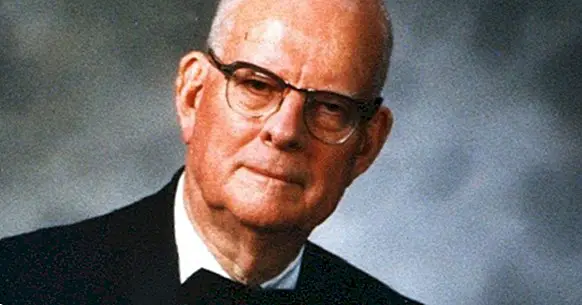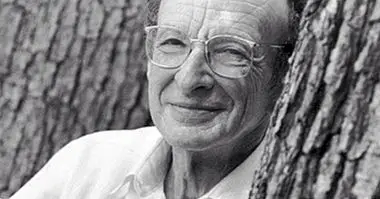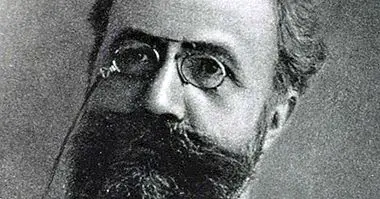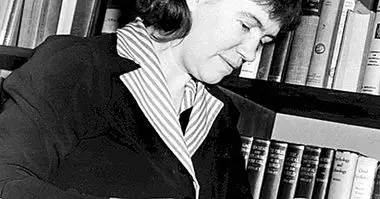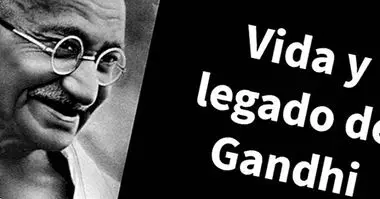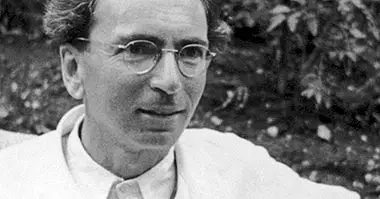William Edwards Deming: biography of this statistician and consultant
There are many wars that have happened both in the past and even today throughout history, exploding by a large number of possible factors and motives: from ideological conflicts to invasions provoked by the search for territory or resources. In these war conflicts there are a lot of losses, with an immense number of victims.
The intervention of external and professional forces that help promote regeneration and restructuring at a social and economic level It can be a great help, implementing useful strategies that improve the situation of the inhabitants of the country.
An example of this is found in William Edwards Deming, one of the main ideologists who contributed to the socio-economic recovery of Japan after the events that took place after the Second World War. It is about this relevant author that we are going to talk about throughout this article, in which we are going to see a short biography of William Edward Deming .
- Related article: "Thomas Malthus: biography of this researcher in political economy"
Biography of William Edwards Deming
William Edwards Deming was born on October 14, 1900 in Sioux City, Iowa. He is the first of three children of the lawyer William Albert Deming and the music Plume Irene Edwards.
The family had very few resources and he lived in a humble home, in a precarious situation. Initially Deming and his family lived in Sioux City, before moving to a farm owned by the maternal grandfather in Camp Powell, Wyoming, something that forced them to lose a lawsuit and the possibility of benefiting from the land grant that He made the government to favor agriculture.
Despite this, the farm was very unproductive and the family's situation was difficult and they barely had enough to eat, so William Edwards Deming had to start working at eight years of age to survive. However, despite their poverty the parents of the child gave great importance to educate their children, and Deming went to the school of Powell in spite of keeping working in different jobs. The young man excelled in mathematics and even several professors emboldened him to go to university.
Academic training and first years of work
When in 1917 he turned seventeen the young Deming He left for Laramie to enroll at the University of Wyoming, where he completed a degree in Electrical Engineering . He finished these studies in 1921, a year after his mother died.
A year later he married Agnes Bell, with whom he would have a daughter. Later He completed a master's degree in Physics and Mathematics at the University of Colorado and after that a Ph.D. in Physics from Yale University , in 1928, with the thesis "A Possible Explanation of the Packing Effect of Helium". In this last university he was hired as a part-time professor.
In the 27 he was hired by the Department of Agriculture of Washington and the United States Census Bureau, where he served as a statistical advisor. During his work in these tasks he discovered different procedures proposed by Walter Shewhart, which would be the basis of many of his later ideas. He taught at the USDA Graduate School, and wrote multiple articles and publications .
Unfortunately three years later his wife died, and during that same year his father also died. Until 1932 he did not redo his love life by marrying Lola Elizabeth Shupe, with whom he would have two more daughters.
The Second World War and its role in the recovery of Japan
During the first moments of the Second World War, he was commissioned to increase the quality of the armament of the army, during the beginning of the first world war. In 1935 he began working as a professor of mathematics and statistics at the USDA Graduate School, while continuing to study statistical methodologies proposed by great professionals in the sector.
He retired from the Administration in 1946, to become a consultant and professor of statistics at the University of New York. That same year he was sent to Japan to study agricultural production and the problems derived from the damages generated during the war, a trip in which he would make numerous contacts interested in his theories (which had not been taken too much into account in the United States).
Later in 1950 he would be contacted and give numerous seminars in the Japanese country regarding statistical control, coming to train a large number of professionals in statistical control of the processes and in the management of the total quality .
These conferences were transcribed and sold, enjoying enormous success. Although they wanted to pay the author's rights, Deming decided to reject it and instead proposed to use what they had given him to generate a prize for exemplary companies (the Deming prize, nowadays one of the most relevant for Japanese companies). His theories and methods began to be applied quickly, something that It contributed enormously to changing the economy and mentality of the country : the need to control the quality of processes and materials and to generate plans that help manage it without waste. It also elaborated multiple principles and obstacles that served to favor the control of said quality.
- Maybe you're interested: "The 45 best sentences about Economics and Finance"
Prestige and return home
After his passage through Japan the popularity of William Edwards Deming increased greatly, making multiple conferences in different parts of the world and a large number of publications.
The ideas that helped improve the Japanese economy, and that until their passage through the country had not been valued in their country of origin, also began to be revised and applied in the United States . In 1975 Deming retired from teaching, but continued to make publications of great international prestige. He also received a large number of awards and distinctions, such as the National Medal of Technology, as well as honorary doctorates at multiple universities.
Death
The death came to William Edward Deming on December 20, 1933, precisely the same year he founded the W. Edward Deming Institute. His death occurred in the city of Washington D.C.
The role of this important statistician, mathematician, professor and consultant was enormous throughout his life , and it even lasts beyond his death. Its methods and principles are still valid in Japanese society and have been applied successfully in other parts of the world, still very useful in the world of management.
Bibliographic references
- The W. Edwards Deming Institute (s.f.). Deming The Man. [Online]. Available at: //deming.org/deming/deming-the-man.

